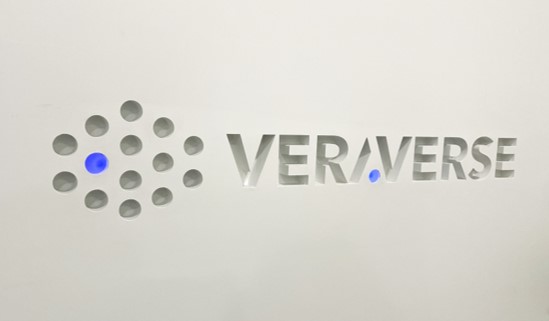기사본문
Veraverse, What is the concept of 'Bioenergetic Checkpoint Inhibition'?
입력 2022-06-13 09:01 수정 2022-08-04 16:09
by Kihyoung Lee

Veraverse has started developing a new cancer metabolism regulator targeting the energy metabolism process of tumor cells with molecular subtypes of SEM(Stem-like, EMT, Mesenchymal), which are insensitive to conventional anticancer drugs
Veraverse is developing a cancer metabolism regulator for a new target based on the 4R innovation strategy that selects suitable targets using the tissues and clinical databases obtained from SEM molecular subtype gastric cancer patients, the multi-omics analysis through AI analysis technology that the company has been built and advanced, and the mouse model analysis constructed using patient tissues.
Jae-Ho Cheong, founder & chief scientific officer(CSO) of Veraverse and professor of Yonsei University College of Medicine, said, “Although the tumors look the same, about 40% of patients still have a poor prognosis due to cancer cells that are resistant to various chemotherapy treatments.” Also, he mentioned, “We started to research and development by noting that cancer cells with this specific SEM molecular subtype have an activated energy metabolism process for cell proliferation, seeing their potential as a cancer metabolism regulator."
CSO Cheong, who has been conducting both clinical and basic research on intractable gastric cancer, presented the concept of 'Bioenergetic checkpoint Inhibition' that can change the threshold of energy metabolism that results in weakening cancer cells without affecting normal cells, as an important point in the development of a cancer metabolism regulator. Cancer cells require energy above a certain threshold for anticancer drug resistance, rapid proliferation, and metastasis. By inhibiting this process, it is an approach that causes cancerous cells to starve due to a lack of energy.
Veraverse is developing a treatment for SEM molecular subtype gastric cancer, which is not treated well with conventional anticancer drugs. As the mechanism is different from existing anticancer drugs, it is expected that it will be possible to use both alone or in combination therapy. Gastric cancer with the SEM molecular subtype accounts for about 40% of all gastric cancers and does not respond well to standard treatment such as immunotherapy. It is known to have a poor prognosis with a 5-year survival of less than 30%.
Veraverse confirmed that cancer cell growth was inhibited as a result of administering the NAMPT(nicotinamide phosphoribosyltransferase) inhibitor 'FK866' to a patient-derived xenograft(PDX) mouse model of gastric cancer with SEM molecular subtype (doi: 10.1053/j.gastro.2018.05.024).
Immunohistochemistry confirmed that the decrease in E-cadherin protein was correlated with nicotinic acid phosphoribosyltransferase(NAPRT) protein deficiency in tumor tissues of 942 patients with gastric cancer. E-cadherin protein is known to inhibit cancer metastasis in the epithelial-mesenchymal transition(EMT), in which epithelial cells are converted into a mesenchymal phenotype to induce drug resistance and cancer metastasis.
NAPRT and NAMPT are enzymes involved in the production of NAD (nicotinamide adenine dinucleotide), which plays an essential role in intracellular energy production. SEM molecular subtype gastric cancer synthesizes NAD through NAMPT because NAPRT is inhibited. Therefore, FK866, a NAMPT inhibitor, showed an effective anticancer efficacy.
Veraverse presented a 4R innovation strategy to develop a Right Target by combining the Right Patients, Right Models, and Right Systems. Based on this strategy, Veraverse is screening the optimal target and developing cancer metabolism regulators by combining the SEM molecular subtype gastric cancer patient's clinical data and tissue sample, the cancer patient-derived xenograft mouse model with the collected cancer cells, and AI-based multi-omics data analysis.
Currently, the most advanced pipeline is ‘V201’, a mechanism that increases the sensitivity of anticancer drugs and induces apoptosis by suppressing intracellular calcium excretion in cancer cells. It has secured a HIT material and is scheduled to enter preclinical trials in 2024 after optimization.
As the next pipelines, V401, V402, and V403, three pipelines are being studied for different targets that regulate glutamine metabolism. In SEM molecular subtype gastric cancer, there is a mechanism to replace glutamine when it is deficient, and they inhibit the related target to prevent the proliferation of cancer cells and increase sensitivity to glutaminase inhibitors.
Meanwhile, Professor Cheong founded Veraverse in September 2020 and is serving as the CSO. He hired Jihyun Park, head of the health team at PwC Advisory, a former Samil Accounting Corporation, as the CEO, whom he met during the consulting process for a Research-Driven Hospital. CEO Park is a business planning expert in the bio/health field who has received research funds of more than 500 billion won by conducting Industry-University-Hospital Cooperative Research and consulting for Research-driven Hospitals, completing more than 15 research-driven hospitals and large-scale research projects in major university hospitals.

관련기사
- Seers Technology has the strength in the field of 'Untact Care' based on the ...
- AbTis, Three Differentiable Points of the Next-Generation ADC Platform
- ‘Turning point’ of ABL, T cell engager is “the reason to be confident”
- The 4 meanings of the ABL-Sanofi’s $10.6B deal, Comparing with big deals in K...
- GenScript ProBio-AbTis, Sign a Strategic Cooperation MOU for the Development ...







